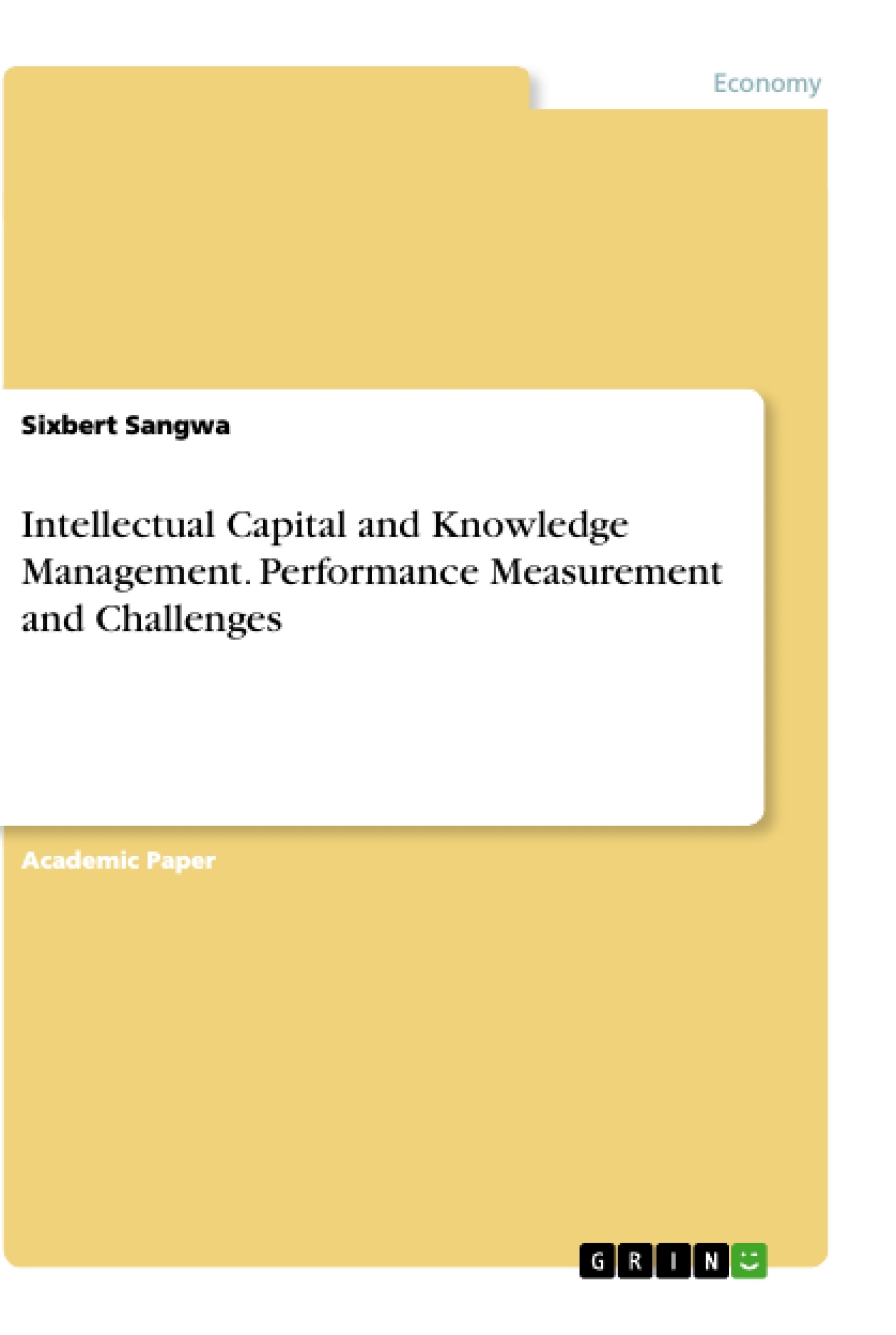This paper discusses Gray’s statement: "Before we measure something, we must ask whether we understand what it is we are trying to measure", relating it to business performance management and management information system theories. With today’s knowledge of management - which involves the way of organizing humans and the use of computers to manage information systems - the paper highlights the importance of hidden values (intellectual capital) in business success, knowledge and performance management, measurement techniques and challenges as well as how communities of practice are managing to solve real firm’s problems and help it meet its goals.
It was argued by Gray (2015) that all businesses operate with specific sets of activities that result in their deliverables. The most challenging and important discussion topic, is how these business processes are effectively managed and measured against the firm’s objectives, as well as how companies measure the contribution of their intangible assets to business outcomes.
Intellectual capital is the intangible assets of an organization resulting from employees' physical efforts, knowledge assets and other results of human innovation and thoughts. Due to firms that have neglected intellectual capital to focus on finance and operations for many years, Leif E. (1991) describes intellectual capital as a hidden value and explains its importance on the company value. Intellectual capital, as argued by some scholars and authors, including Edvinsson, can take many forms.
Table of Contents
- Intellectual Capital
- Intellectual capital categories
- Knowledge Management
- Aspect of Measurement
- Communities of Practice/Interest
- Performance Measurement and Challenges
- Wrong Designing
- Lack of leadership commitment
- Absence of Integration
- Ignoring change management in system implementation
Objectives and Key Themes
This paper critically examines Gray et al.'s statement: "Before we measure something we must ask whether we understand what it is we are trying to measure" (Gray et al., 2015) within the context of business performance management and management information systems. The paper highlights the importance of intellectual capital in business success, exploring knowledge management and performance measurement techniques, as well as the challenges associated with effective implementation.
- The Significance of Intellectual Capital in Business Success
- Knowledge Management Practices and Techniques
- Challenges in Performance Measurement and Management Information Systems
- The Role of Communities of Practice in Addressing Business Challenges
- The Relationship between Measurement, Understanding, and Business Outcomes
Chapter Summaries
- Intellectual Capital: This chapter defines intellectual capital as the intangible assets of an organization, emphasizing its hidden value and importance in business success. The chapter explores various forms of intellectual capital, including human capital, structural capital, and customer capital, and their respective components. The importance of effective knowledge-sharing practices for maximizing competitive power is also highlighted.
- Knowledge Management: This chapter introduces knowledge management (KM) as a recent interdisciplinary model for promoting learning and innovation. The chapter discusses KM practices in relation to intellectual capital development, focusing on the creation and sharing of knowledge assets. The role of social capital, human capital, and knowledge management in achieving business success is emphasized.
- Performance Measurement and Challenges: This chapter explores the challenges associated with performance measurement and management information systems. The chapter highlights various issues, including wrong design, lack of leadership commitment, absence of integration, and ignoring change management in system implementation. The focus is on identifying key factors that hinder effective performance measurement and knowledge management.
Keywords
The key terms and concepts explored in this paper include: Intellectual capital, Knowledge Management, Performance Management, Strategic Systems Thinking, Aspect of Measurement, Community of Practices, Intangible Assets, and Business Outcomes.
- Quote paper
- Dr. Sixbert Sangwa (Author), 2017, Intellectual Capital and Knowledge Management. Performance Measurement and Challenges, Munich, GRIN Verlag, https://www.grin.com/document/1014897




